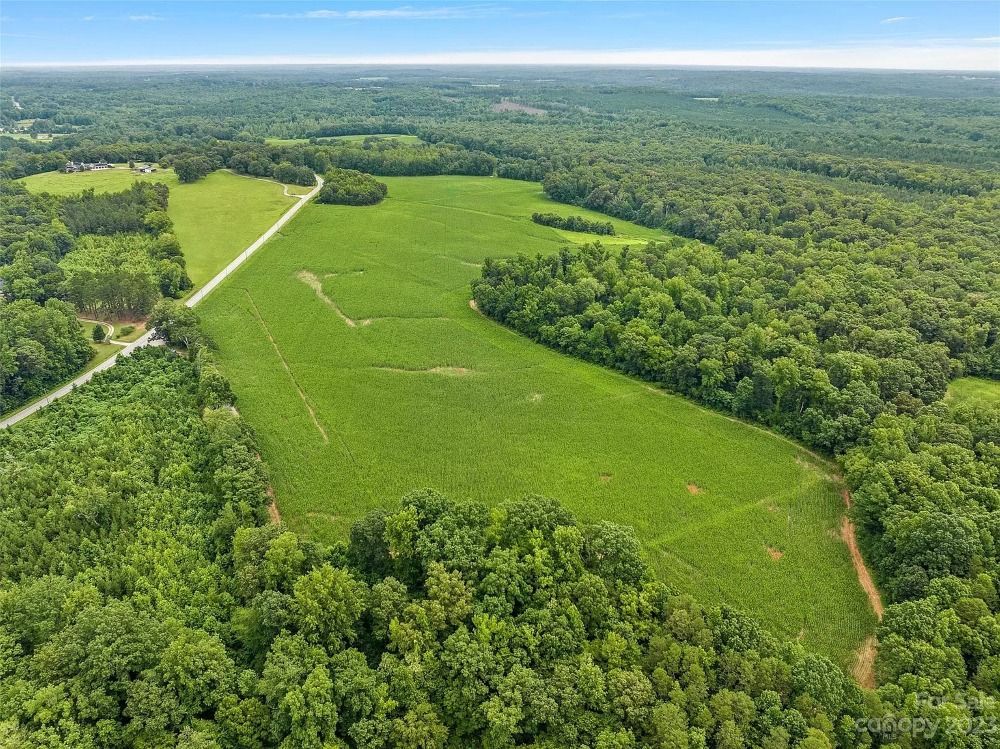Maximizing Profits: Understanding Agricultural Use Programs and Deferred Property Taxes
Table of Contents
- Introduction
- The Importance of Understanding Agricultural Use Programs
- Benefits of Agricultural Use Programs
- Eligibility and Criteria for Agricultural Use Programs
- County Variations in Agricultural Programs
- Personal Example of Benefits
- Risks of Not Complying with Program Requirements
- Strategies to Maximize Benefits
- Importance of Due Diligence
- FAQ
- How to Get Further Help and Information
Introduction
Agricultural use programs and deferred property taxes are important aspects of land ownership that many people may not be aware of. Understanding these programs can lead to significant cost savings and financial benefits for landowners, whether they are looking to move to the countryside or make land acquisitions as an investment.
The Importance of Understanding Agricultural Use Programs
Understanding agricultural use programs and deferred property taxes is crucial for landowners to maximize their profits and minimize expenses. Without knowledge of these programs, landowners may end up paying significantly higher property taxes, leading to a substantial cost burden. By qualifying for agricultural use programs and deferred property taxes, landowners can benefit from reduced tax rates and save money in the long run.
Benefits of Agricultural Use Programs
Qualifying for agricultural use programs can result in reduced property tax rates, providing substantial financial benefits for landowners. Whether it's through crop and hay production or forestry programs, meeting the criteria for these programs can lead to significant cost savings.
- Reduced property tax rates
- Financial benefits for landowners
- Cost savings through meeting program criteria
Eligibility and Criteria for Agricultural Use Programs
Understanding and meeting the eligibility criteria for agricultural use programs is crucial for landowners to benefit from reduced property tax rates. The specific criteria for each program may include considerations such as the size of the land, the type of land use (e.g., farming, forestry), and county-specific regulations. It's important to engage in due diligence and work with real estate professionals, county tax assessors, and closing attorneys to ensure that all requirements are met for these programs.
- Size of the land
- Type of land use (farming, forestry)
- County-specific regulations
- Due diligence and working with professionals
County Variations in Agricultural Programs
Agricultural use programs and deferred property taxes are regulated at the county level, with each county having its own set of regulations and tax assessments. This means that landowners need to understand the specific criteria and requirements in their respective counties to qualify for these programs. For example, the size of the land, the type of land use (e.g., farming, forestry), and zoning regulations can vary from county to county, affecting eligibility for these programs. Due diligence is essential when navigating agricultural use programs and deferred property taxes to ensure that all requirements are met.
Personal Example of Benefits
One personal example of the benefits of agricultural use programs and deferred property taxes is a case where a landowner paid significantly reduced property taxes due to meeting the criteria for forestry use. In this example, the landowner paid only $179 in property taxes for a parcel of land just under 100 acres, resulting in substantial cost savings. By meeting the criteria for forestry use and producing timber, the landowner benefited from reduced property tax rates provided by the state and county. This example highlights the financial benefits that landowners can achieve by qualifying for agricultural use programs and deferred property taxes.
Risks of Not Complying with Program Requirements
Failure to comply with program requirements for agricultural use and deferred property taxes can lead to significant financial risks for landowners. If the criteria for these programs are not met, landowners may face increased property tax rates, resulting in a substantial cost burden. Additionally, failing to meet the requirements may lead to the imposition of rollback taxes, which can be a significant financial liability for property owners.
Imposition of Rollback Taxes
Not adhering to the program requirements can result in the imposition of rollback taxes, which are charged when land is removed from deferred taxation programs. This can lead to a substantial and unexpected financial burden for property owners, significantly increasing their property tax liabilities.
Loss of Financial Benefits
Non-compliance with program requirements can lead to the loss of financial benefits associated with reduced property tax rates. Landowners who fail to meet the criteria for agricultural use programs and deferred property taxes may miss out on significant cost savings and financial advantages provided by these programs.
Strategies to Maximize Benefits
Landowners can implement various strategies to maximize the benefits of agricultural use programs and deferred property taxes, thereby reducing their property tax liabilities and achieving significant cost savings. By understanding and adhering to program requirements, landowners can capitalize on the financial advantages offered by these programs.
Engage in Due Diligence
Conduct thorough due diligence to ensure compliance with program requirements. Working with real estate professionals, county tax assessors, and closing attorneys can provide valuable guidance and advice, enabling landowners to navigate the intricacies of agricultural use programs and deferred property taxes effectively.
Optimize Land Usage
Optimizing land usage in alignment with program criteria can help landowners maximize the benefits of reduced property tax rates. By leveraging agricultural use through crop and hay production or forestry programs, landowners can achieve substantial cost savings and financial advantages.
Stay Informed About County-Specific Regulations
Stay informed about county-specific regulations and tax assessments to ensure compliance with program requirements. Each county has its own set of regulations, and understanding the specific criteria and requirements in the respective county is essential for landowners to qualify for agricultural use programs and deferred property taxes.
Importance of Due Diligence
Engaging in due diligence is essential when navigating agricultural use programs and deferred property taxes. Working with real estate professionals, county tax assessors, and closing attorneys can provide valuable counsel and advice, ensuring that landowners are positioned to benefit from these programs.
FAQ
1. What are agricultural use programs and deferred property taxes?
Agricultural use programs and deferred property taxes are beneficial programs offered by the states of North Carolina and South Carolina to provide financial benefits to landowners in rural settings.
2. How do landowners benefit from agricultural use programs?
By qualifying for agricultural use programs, landowners can significantly reduce their property tax rates, resulting in substantial cost savings. These programs are based on specific criteria related to land size, type of land use, and county-specific regulations.
3. What are the risks of not complying with program requirements?
Non-compliance with program requirements can lead to increased property tax rates, imposition of rollback taxes, and loss of financial benefits associated with reduced property tax rates.
4. What strategies can landowners implement to maximize the benefits of agricultural use programs and deferred property taxes?
Landowners can engage in due diligence, optimize land usage in alignment with program criteria, and stay informed about county-specific regulations to maximize the benefits of these programs.
5. How can landowners get further help and information?
If you need further information or assistance, feel free to contact us at the number provided or visit our website. We are happy to discuss this topic in more detail and assist you with your next investment.
How to Get Further Help and Information
If you want to talk further or need more information, feel free to give us a call at the number below or check out our website. We'd be happy to discuss this in further detail with you and help you out with your next investment!
Phone: (704) 906-1693 Kyle
Email: kyle@kellercarolina.com
Website: www.kellercarolina.com


Email:
alyson@kellercarolina.com
kyle@kellercarolina.com
Phone:
(704) 236-1208 Alyson
(704) 906-1693 Kyle
Address:
3430 Toringdon Way, Charlotte, NC, United States
All information provided is deemed reliable but is not guaranteed and should be independently verified. This website and its affiliates make no representation, warranty or guaranty as to accuracy of any information contained on this website. You should consult your advisors for an independent verification of any properties or legal advice.

Made with ❤️ by Liftoff Agent in the USA.









